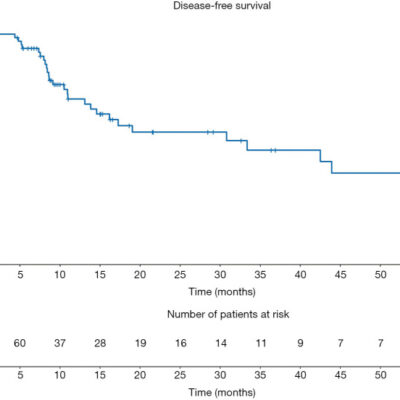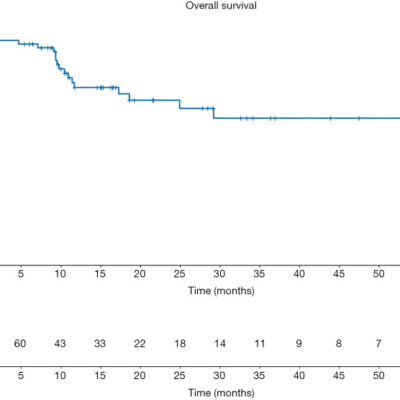Jamil Ghahhari, Michele Marchioni, Philippe E Spiess, Juan J Chipollini, Peter Nyirády, Judith Varga, Pasquale Ditonno, Stefano Boccasile, Giulia Primiceri, Cosimo De Nunzio, Giorgia Tema, Andrea Tubaro, Alessandro Veccia, Alessandro Antonelli, Gennaro Musi, Ottavio De Cobelli, Andrea Conti, Stefano Puliatti, Salvatore Micali, Mario Álvarez-Maestro, José Quesada Olarte, Erico Diogenes, Marcos Venicio Alves Lima, Andrew Tracey, Georgi Guruli, Riccardo Autorino, Petros Sountoulides, Roman Sosnowski, Luigi Schips, Luca Cindolo
- PMID: 32676414
- PMCID: PMC7354339
- DOI: 10.21037/tau.2020.04.04
Abstract
Background: The use of organ sparing strategies to treat penile cancer (PC) is currently supported by evidence that has indicated the safety, efficacy and benefit of this surgery. However, radical penectomy still represents up to 15-20% of primary tumor treatments in PC patients. The aim of the study was to evaluate efficacy in terms of overall survival (OS) and disease-free survival (DFS) of radical penectomy in PC patients.
Methods: Data from a retrospective multicenter study (PEnile Cancer ADherence study, PECAD Study) on PC patients treated at 13 European and American urological centers (Hospital “Sant’Andrea”, Sapienza University, Roma, Italy; “G.D’Annunzio” University, Chieti and ASL 2 Abruzzo, Hospital “S. Pio da Pietrelcina”, Vasto, Italy; Department of Genitourinary Oncology, Moffitt Cancer Center, Tampa, FL, USA; Hospital of Budapest, Hungary; Department of Emergency and Organ Transplantation, Urology and Andrology Unit II, University of Bari, Italy; Hospital “Spedali Civili”, Brescia, Italy; Istituto Europeo di Oncologia, University of Milan, Milan, Italy; University of Modena & Reggio Emilia, Modena, Italy; Hospital Universitario La Paz, Madrid, Spain; Ceara Cancer Institute, Fortaleza, Brazil; Virginia Commonwealth University, Richmond, VA, USA; Aristotle University of Thessaloniki, Thessaloniki, Greece; Maria Skłodowska-Curie Memorial Cancer Center, Warsaw, Poland) between 2010 and 2016 were used. Medical records of patients who specifically underwent radical penectomy were reviewed to identify main clinical and pathological variables. Kaplan-Meier method was used to estimate 1- and 5-year OS and DFS.
Results: Of the entire cohort of 425 patients, 72 patients (16.9%) treated with radical penectomy were extracted and were considered for the analysis. The median age was 64.5 (IQR, 57.5-73.2) years. Of all, 41 (56.9%) patients had pT3/pT4 and 31 (43.1%) pT1/pT2. Moreover, 36 (50.0%) were classified as pN1-3 and 5 (6.9%) M1. Furthermore, 61 (84.7%) had a high grade (G2-G3) with 6 (8.3%) positive surgical margins. The 1- and 5-year OS rates were respectively 73.3% and 59.9%, while the 1- and 5-year DFS rates were respectively 67.3% and 35.1%.
Conclusions: PC is an aggressive cancer particularly in more advanced stage. Overall, more than a third of patients do not survive at 5 years and more than 60% report a disease recurrence, despite the use of a radical treatment.
Keywords: European Association of Urology guidelines (EAU guidelines); Penile cancer (PC); lymphadenectomy; organ sparing surgery (OSS); penile amputation; radical penectomy; survival.
2020 Translational Andrology and Urology. All rights reserved.
Conflict of interest statement
All authors have completed the ICMJE uniform disclosure form (available at http://dx.doi.org/10.21037/tau.2020.04.04). The authors have no conflicts of interest to declare.


